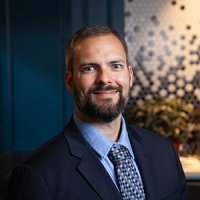The Honduran Presidential Election
Honduras is the 4th poorest country in the Americas with a small economy and very limited trade with the U.S., and even with an increase in out migration in recent months, Hondurans still represent a fraction of all undocumented migrants entering the United States. The country has become one of the main links in the chain of drug trafficking from the Andes to the lucrative US market. The US estimates that 87% of drug flights, and nearly 70% of cocaine coming from South America pass through Honduras. They lived through a coup in 2009, an unsettling event that still impacts the nation’s political landscape. The fragility of Honduran institutions not only threatens Honduras but have an impact the region and ultimately the United States.
To understand the upcoming elections process, we assembled a great panel of analysts and observers to help us discern the state of play in Honduras and what is at stake.
We began with comments by Jim Swigert from the National Democratic Institute who is just back from Honduras where NDI has been engaged with a coalition of civil society organizations that are monitoring the entire election process. Jim directs the National Democratic Institute's (NDI) programs in Latin America and the Caribbean. Before joining NDI in 2005, he spent 30 years as a career diplomat with the U.S. Department of State serving at embassies in Latin America and Europe. He has also served as the Principal Deputy Assistant Secretary of State for International Organization Affairs and Deputy Assistant Secretary of State for Southeast and Central Europe, and was on the staff of the former chairman of the House Foreign Affairs Committee, Rep. Dante Fascell (D-FL). Jim provided us with an overview of where things stand in terms of the election process itself.
James Bosworth gave us his assessment of the broader political landscape in Honduras, the key issues being debated in the campaigns, and what we might expect going forward. Boz, as he is widely known from, is a partner and director of analysis at Southern Pulse. He has twelve years of experience researching and writing about politics, economics, security, and technology in Latin America and the Caribbean. Over the past nine years, in his free time, he has been the author of “Bloggings By Boz,” where he provides daily analysis and commentary on Latin American politics and US foreign policy. He also authored a chapter on Honduras in a Wilson Center publication entitled Organized Crime in Central America: The Northern Triangle.
Next we heard from Ambassador Donald Planty who provided his views on what was at stake in the elections and how the results may effect democracy in Honduras and the broader security and regional landscaper. Amb. Planty is a Senior Advisor at the Albright Stonebridge Group where he advises clients on Latin America issues and is also President of Planty & Associates LLC. He is the former U.S. Ambassador to Guatemala and has nearly 40 years of experience in the private sector and public service at the local, state and national levels.
Finally, we heard from Stephen Johnson who currently serves as the Regional Director for Latin America and the Caribbean at the International Republican Institute (IRI), responsible for developing and managing programs for strengthening democratic institutions and promoting best practices in governance. Steve was a senior fellow and director of the Americas Program at the Center for Strategic and International Studies and has served as the Deputy Assistant Secretary of Defense for Western Hemisphere Affairs, from 2007 to 2009. Before that he was a senior foreign policy analyst at The Heritage Foundation. He is a retired Air Force officer, a pilot and a military attaché on active duty, and he is a member of the Air Force Reserve.
Speakers

Founder, Latin America Risk Report & Hxagon Consulting
Hosted By

Latin America Program
The Wilson Center’s prestigious Latin America Program provides non-partisan expertise to a broad community of decision makers in the United States and Latin America on critical policy issues facing the Hemisphere. The Program provides insightful and actionable research for policymakers, private sector leaders, journalists, and public intellectuals in the United States and Latin America. To bridge the gap between scholarship and policy action, it fosters new inquiry, sponsors high-level public and private meetings among multiple stakeholders, and explores policy options to improve outcomes for citizens throughout the Americas. Drawing on the Wilson Center’s strength as the nation’s key non-partisan policy forum, the Program serves as a trusted source of analysis and a vital point of contact between the worlds of scholarship and action. Read more
